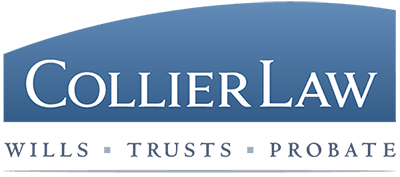In Oregon, guardianship provides legal protection for those that lack the capacity to meet essential requirements for their own physical health or safety. A court-appointed guardian makes vital decisions for the individual, advocating for their rights and wellbeing.
The process of appointing a Guardian to act on behalf of another person–especially an adult– is often considered an extreme action and should be the last resort to ensure their physical health and wellbeing are preserved. The process is often thought to be expensive, complicated, and public. Our state legislature and human rights advocates have made this process complex on purpose. When a Guardian is appointed to act on behalf of another person, many of the person’s rights are taken away and there are ample opportunities for abuse. It is important to go through the guardianship process with an attorney so that you understand your rights, obligations, and limitations as a Guardian.
Unless otherwise requested, guardianship persists until the person is eighteen years old, has gained capacity, or has died. The guardianship proceeding will remain open until the court sees fit to end the court proceeding. To initiate the proceeding, a petition is filed with the court. Interested persons as defined by statute are served with notice of the proceeding, including the person believed to require the appointment of a guardian. Around the time that the initial petition is filed, the court will appoint an independent third party to verify the information in the petition is substantially true. This person is often referred to as a Court Visitor or Visitor. If there are no objections to the petition and the Visitor’s report is aligned with the petition, the court may issue a protective order by appointing the Guardian. The Guardian will receive Letters of Guardianship to acknowledge their authority. The Guardian is required to file a report with the court each year.
As a guardian, you’d actively balance decision-making with preserving the individual’s autonomy. A guardian may only be appointed for an adult person as is necessary to promote and protect the well-being of the protected person. A Guardian for an adult person must encourage the development of maximum self-reliance and independence of the protected person and may be ordered only to the extent necessitated by the person’s actual mental and physical limitations.Grasping the limitations and qualifications of guardianship ensures optimal care. Further exploration into the topic can clarify roles, responsibilities, and more.
What Is Guardianship?

Guardianship, a legal safeguard in Oregon, is a legal proceeding with the court involving the appointment of a Guardian. Guardianship is sought because it is the last resort to preserve the other person’s physical safety and wellbeing. A Guardian, often a family member, is mandated by the court to act in the best interest of this incapacitated individual. It’s important to note that a medical diagnosis isn’t synonymous with a finding of legal incapacity and a person subject to a guardianship proceeding is not presumed to be incompetent. The Guardian must encourage the development of maximum self-reliance and independence. This means that a Guardian is limited in making decisions on behalf of the other person if the person has the ability to make informed decisions and take actions independently.
The court may make the determination of the Guardians duties and limitations based on evidence regarding what is necessary to preserve the person’s physical safety and wellbeing. The individual subject to guardianship is referred to as the ‘protected person’. Generally, the Guardian will assist the protected person with making decisions regarding healthcare, residence, and daily living requirements (hygiene, clothing, and food). The court will ensure the protection of the protected persons rights and wellbeing through continued court oversight.
Role of a Guardian
In the realm of guardianship in Oregon, a guardian’s role goes beyond mere decision-making; it involves ensuring the wellbeing, care, and safety of the protected person while promoting their self-reliance and independence. As a guardian, you’re appointed by the court to act for another person that relies on you for support.
- You promote the development of maximum self-reliance and independence of the protected person.
- To the extent practicable, you encourage the protected person to participate in decisions.
- You identify the values and preferences of the protected person and use this information when making decisions regarding their best interests.
- You ensure their care, comfort, and maintenance.
- You make necessary decisions regarding healthcare, residence, and daily living requirements, always prioritizing their best interests.
- You ensure the physical wellbeing, safety, and care of the protected person.
- You advocate for the protected persons rights.
- You facilitate supportive relationships and services.
- Your role isn’t just about decision-making but also about providing support and acting as an advocate for the protected person.
Duties and Responsibilities
The specific duties and responsibilities of a guardian will depend on the order issued by the court. Navigating the duties and responsibilities of a guardian in Oregon involves a deep commitment to the wellbeing of the protected adult. This necessitates a sensitive balance between decision-making and encouraging the individual’s autonomy whenever possible.
Generally, a guardian, your responsibilities under Oregon law include understanding their abilities, needs, and healthcare. You’ll be tasked with maintaining contact, choosing their residence, and providing for their care. Additionally, you’re expected to respect and incorporate their values and preferences in decisions.
Guardian Appointment Process
When you’re stepping into the role of a guardian in Oregon, it’s crucial to understand the appointment process. Unless otherwise requested, the guardianship proceeding will remain until the protected person is eighteen years old, has gained capacity, or has died. Only the court has the authority to determine that the proceeding should end.
Generally, here are the steps in the legal process:
- It is important to consult with an attorney before deciding to file a petition for guardianship. There may be important factors to consider before filing, such as less complicated and less expensive alternatives.This is a complicated process that often requires the assistance and advice of an attorney.
- Once you and your attorney have decided to get started, the court proceeding is initiated by filing a petition in the county court where the protected person resides.
- There are several required legal notices that are sent to the person that would be subject to the proceeding and interested persons.
- The court reviews the petition and sends a Court Visitor to assess the accuracy of the petition and if a guardianship is necessary to protect the physical wellbeing and safety of the person.
- The Court Visitor submits a report.
- If no objections to the guardianship are filed, and the court determines the individual meets the legal criteria for guardianship and the guardian is qualified, the court may appoint a guardian.
- If approved, the court appoints the guardian.
- The guardian files annual reports with the court on the anniversary of their appointment.
- Following the appointment, the court may send a special advocate to investigate the success of the guardianship for any reason.
Qualifications to Petition for Guardianship
Understanding the qualifications to petition for guardianship is essential. Any person who is interested in the affairs or welfare of a person may file a petition for the appointment of a guardian, whether it is a friend, family member, or an incapacitated person seeking to appoint a guardian for themselves. However, it is important to understand that filing the petition is a serious action that should be considered following the advice of an experienced attorney. A guardianship may impose restrictions on the protected person’s ability to make important decisions for themself. Also, there are several legal requirements the petition must meet and several legal notices that must be served. The person that would be subject to the guardianship must receive a copy of the petition.
Collier Law Offers Guardianship and Conservatorship Services
If you’re seeking professional assistance with the guardianship or conservatorship process, Collier Law offers comprehensive services. Specializing in estate planning and probate court, we will guide you through the complex process of obtaining legal authority for ensuring the safety and wellbeing for a loved one.
Our expertise extends to creating wills, trusts, and handling probate matters, ensuring your loved one’s best interests are always at the forefront. Careful estate planning can prevent invasive and costly court proceedings while still providing the necessary protection for those unable to manage their own affairs.
Contact us today for experienced attorneys and initial consultation.
Visit our About Us page for more information about our law firm or see our FAQ page to find answers to your questions.

